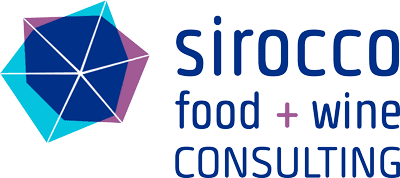In the past 10 years, the Safe Quality Food (SQF) certification has grown significantly to include many small food manufacturers, food packaging manufacturers, storage and distribution providers and now pet food and animal food businesses. According to market analysts, this trend is destined for further growth. Linkedin Pulse predicts that the food certification market will grow by 5.7% between 2022 and 2028. The need for annual certification audits in food safety and quality is driven by consumers, stricter regulations and international market forces. At a minimum, HACCP audit certification is required to sell food on the domestic market. When a food business decides to export or sell to a major retailer, the need for internationally recognized certification such as SQF is now a must. Common SQF questions we receive always center around certification costs, accessing expert knowledge and other barriers to entry. If you are a small, very small or medium food or pet food manufacturer considering SQF certification for your facility, read on.
In the last 10 years, SQF consultants have adapted their business model to be more inclusive of small food producers providing flexible and cost-friendly solutions. For a small fee, food businesses can now purchase food safety manuals written by certified professionals and learn, at their own pace, how to write and implement an SQF food safety management system. We have met former pharma and dietary supplement professionals making the switch to the food industry and certifying to SQF easily using our templated solutions and consulting services. Businesses that have hired junior food safety practitioners can now access excellent quality SQF consulting for a reasonable price. So why should you invest in Certified SQF Consulting?
1. Certified SQF Consultants are experts. They must certify annually – at a cost – to continue to provide services. They are required to attend the SQF professional update, attend 16 hours of professional development and submit a professional journal of consulting activity yearly to Exemplar Global in Australia. They are known to certification bodies and SQFI. Most reliable and certified SQF consultants have an internet presence, are active on social networks and provide you with the latest industry and regulatory news.
2. Certified SQF Consultants save you time and money. If you had a chance to read our SQF-related content online, you know that the average certification project takes around 6 months plus or minus 2 months. Working with a certified SQF consultant drastically improves the certification project turnaround time. Consultants provide tested solutions that allow you to do things right the first time, which helps you stay on budget. Our clients generally achieve scores in the low and high 90s on the first certification attempt.
3. Certified SQF Consultants are authorized to consult based on experience in specific Food Sector Categories (FSCs). This is important because your HACCP plan must be customized to your facility. Sites that provide Hish risk, Ready-to-eat (RTE) foods have specific requirements under the SQF code. Beverage processing has its unique equipment maintenance and sanitation protocols. Canning, retorting and HPP facilities require SQF consultants who are process authorities. Clients may therefore ask SQF consultants for their credentials and the list of FSCs they qualify for. In this regard, SQFI is focused on performing more audits of consultants’ qualifications to ensure a great level of subject matter expertise is provided under the SQF brand.
4. Certified SQF Consultants are hired to train and guide you through the certification process. A food safety management system that is GFSI-compliant requires knowledge of Codex HACCP. The two designated practitioners must attend an accredited HACCP training course. Most SQF consultants can also train on HACCP, internal audit, food fraud and food defense. These are disciplines that your business must be familiar with in order to continuously improve and retain your food safety certification.
5. Certified SQF Consultants are project managers. They keep track of timelines and milestones and give you honest feedback on your audit readiness. We validate your certification readiness by performing gap assessments and internal audits. The gap assessment (2 days on average) allows us to gauge the site’s level of compliance with the SQF code Food Manufacturing Edition 9. It also ensures that your business complies with food safety and labelling regulations. If you intend to become SQF certified, you will want to develop and implement a food safety plan first and obtain your HACCP training certificate. The road to SQF certification will be straightforward once the facility is working under Good Manufacturing Practices (GMP) and HACCP. See point 7 for the section on Internal Audits.
6. Certified SQF Consultants accompany you through the certification project and beyond. A typical SQF audit doesn’t stop with the completion of the 2-day initial certification audit. SQF consulting also covers the corrective action submission process and the recertification process, culminating with the unannounced audit. Corrective Action is central to any food safety management system. It is the practitioners’ tool that enables them to investigate issue, establish the root cause of a problem and implement a corrective action/Preventive Action (CAPA) plan. An SQF consultant can easily interpret a non-conformance statement from an auditor and identify a solution that is effective and cost-friendly. In addition, SQF consultants provide coaching to facilitate the unannounced audit process which takes place every 3 audit cycles.
7. Certified SQF Consultants perform internal audits for their clients. This allows them to visit the sites annually, train the internal audit team and manage change effectively, thus ensuring no surprises during the audit or re-certification audit. During an internal audit, a consultant will verify that the site requirements (Ex: SQF Manufacturing, Module 11 or Storage and Distribution, Module 12) are properly implemented. They will also interview the SQF implementation team and site employees regarding their SQF responsibilities and the level of awareness for food safety (See the importance of the food safety culture). Last but not least, they will ensure that the SQF documentation, including SQF records, is on file and complete. The pandemic has allowed consultants to pivot and work remotely through video feeds, pictures and teleconferencing tools. Audits, interviews and documentation reviews can be conducted remotely, saving you money. Site visits are still a thing in SQF consulting and are usually combined with training and coaching to assess audit readiness.
8. SQF Certified Consultants develop documentation to supplement your SQF procedure manual. Whether you require a customized Codex HACCP plan, a Preventive Control plan for Human/Animal Food under FSMA, a Canadian PCP plan, a Food Fraud Vulnerability and Mitigation plan or an FSMA IA/Food Defense Plan, a SQF Consultant must be able to assist and get you closer to certification faster. The plans can also be reviewed or audited based on needs and budgets.
9. Certified SQF Consultants provide guidance on regulatory requirements such as FDA FSMA or Canadian SFCR. The regulatory scope of the SQF certification must be identified early in the process. Legislation requirements in SQF stipulate that: “site shall ensure that at the time of delivery to customers, finished products shall comply with food safety legislation applicable in the country of manufacture and sale. This includes compliance with legislative requirements applicable to maximum residue limits, food safety, packaging, product description, net weights, nutritional, allergen, and additive labelling, labelling of identity preserved foods, any other criteria listed under food legislation, and to relevant established industry codes of practice” (See Mandatory System Elements #2.4.1, SQF Food Manufacturing Code).
10. SQF Consultants must also be knowledgeable about food imports and the food safety regulations around exporting food. This is part of Legislation requirements under SQF. Whether it is an FSVP plan you require for the US market or a Canadian PCP importer Plan or Exporter Plan, SQF Consultants can assist with the creation of plans for import or export, thereby ensuring regulatory and SQF compliance. Do you know about the FDA Data Dashboard? This is a great resource that provides a compliance score card of FDA registered facilities (domestic and foreign) and can support the development of your SQF Supplier Approval Program (See section #2.3.4 Approved Supplier Program, SQF Food Manufacturing edition 9).
Food safety regulations are getting more intricate. Certification requirements now include many programs requiring specific expertise which must be outsourced. Certified SQF Consultants can train, guide and keep you on track at a reasonable cost. Learn more about our services here.
Sirocco Food + Wine Consulting has been serving the industry for 10 years and provides SQF and regulatory training and consulting services. We are known for our SQF templates, accredited training services and Canadian PCP consulting services. Our clients are in the United States, Canada and Australia. Are you considering SQF in 2024? Give us a call to discuss your certification objectives.





